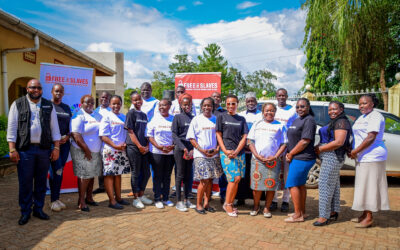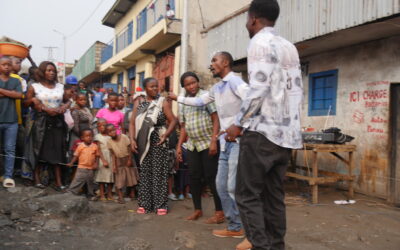The Democratic Republic of the Congo is one of the deadliest spots in the poorest continent on earth. Millions have died during the conflict between warring rebel militias and the national army. At stake: vast mineral wealth and control of slaves who are forced to work the mines. Slave labor fuels the fighting and prevents Congo residents from building better lives.
Since September of last year, Free the Slaves teams have been working on the ground in eastern DRC to uncover the extent of slavery, and to develop ways to end it. Our investigators have discovered several forms of modern slavery in eastern DRC, including:
- Slavery at gunpoint. Villagers are rounded up by armed groups and marched to the mines.
- Debt bondage slavery. Money, food or tools are advanced to laborers, but bogus accounting and abusive interest rates prevent them from repaying the debt. Miners are forced to keep digging.
- Sexual slavery. Militias and the army abduct women and girls from villages. Some are lured to mining zones by false promises of financial support.
- Peonage. False criminal charges are made against a person, who will be sentenced in a corrupt or phony trial to toil at the mines.
- Child soldiering. Children are forced into the ranks of armed groups that control mining zones.
- Forced marriage. Combatants take women from villages to keep as “wives.”
The Congo is rich in minerals that make modern lifestyles possible-from medical devices and household goods to automobiles and high-tech electronics. They’re known as the “Three Ts” (tin, tungsten, tantalum) and gold. Ore mined by slaves in the DRC is smuggled into the global trade in metals, tainting many products that we use every day.
The military conflict makes things worse, as armed groups battle for control of lucrative mining sites. But the quest for illicit profits won’t end when the shooting does. Congolese communities need resources to avoid all forms of slavery and to develop alternative livelihoods that don’t rely so heavily on mining. Are you part of the problem? Can you be part of the solution?
Free the Slaves has an action plan to help end slavery linked to the DRC mines. Efforts are underway to resolve the DRC military conflict, but slavery itself must end for lasting peace. Free the Slaves, together with Congolese human rights organizations, is continuing to investigate the extent of slavery in eastern DRC and lay the groundwork for community-based action to end the exploitation.
A conflict minerals provision was folded into the Dodd-Frank Wall Street Reform and Consumer Protections Act, signed into law last July. The provision requires that companies disclose if they use minerals from the DRC region and reveal if their products are “conflict free.” Regulators are now writing rules for how companies must audit their supply chains and publicize their use of “conflict minerals.” The State Department is also strategizing how to break the links between mining, armed groups and human rights abuses. These developments were included in the regulatory overhaul of the U.S. financial system.
But it’s vital that people in slavery are engaged in developing these solutions. Free the Slaves is working on the frontlines to ensure that their voices are heard. They tell us that boycotting slave-tainted and conflict-tainted products will only make their lives worse.


